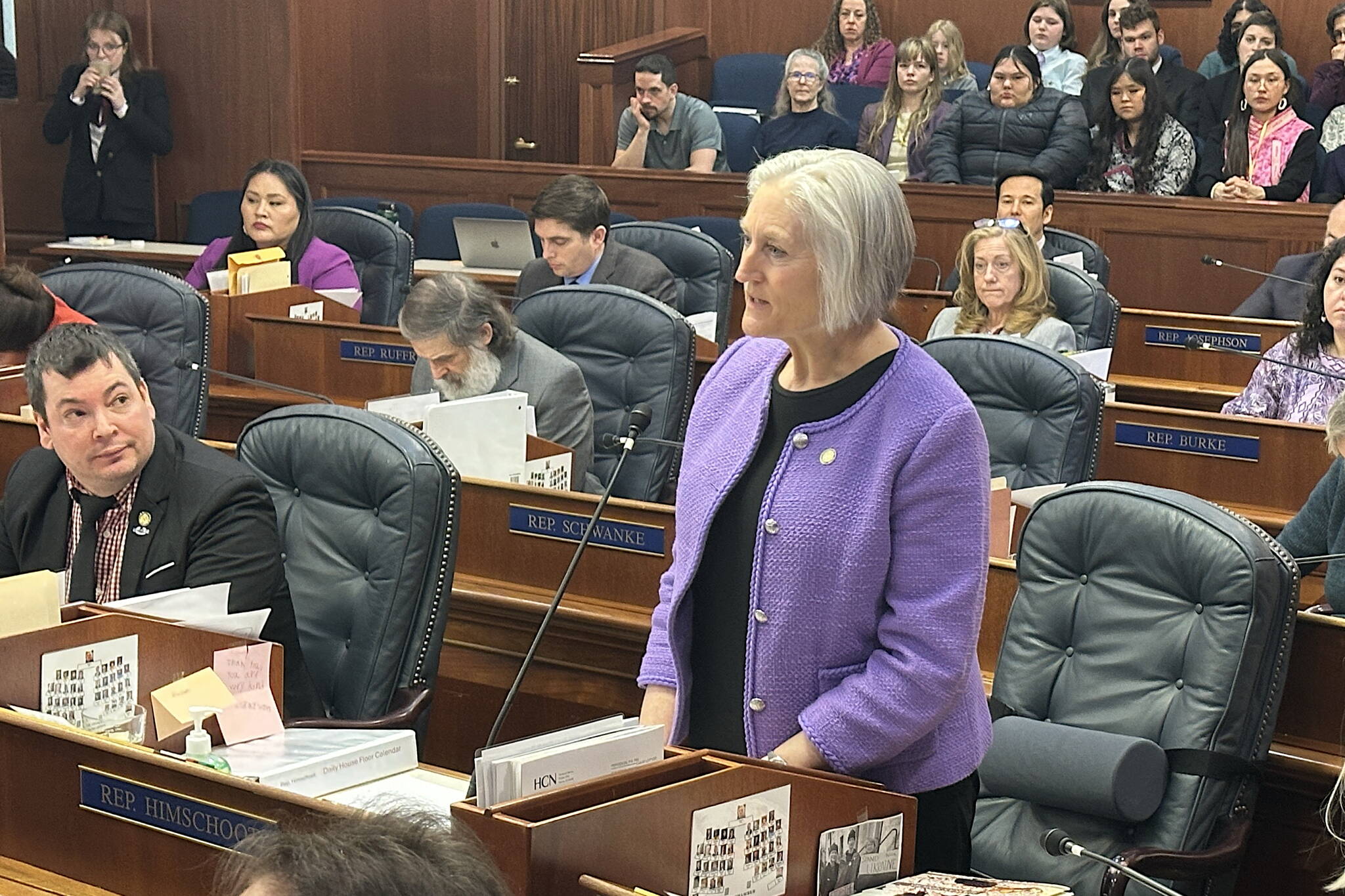A $1,000 increase in per-student education spending, or about 17%, passed the Alaska State House on Wednesday by a 24-16 tally that saw three Republicans vote with the mostly Democratic majority caucus. But the discussion immediately afterward turned to a likely trim in the increase by the Senate and how to pay for it given the state’s increasingly gloomy financial situation.
House Bill 69 increases the Base Student Allocation from its statutory base of $5,960 and makes other changes that cost a total of about $275 million, a sizeable fraction of a state budget deficit now estimated at more than $600 million for the fiscal year starting July 1.
That deficit assumes a $680 BSA increase proposed by the Senate majority and a Permanent Fund dividend of about $1,400. Legislative leaders have said that PFD would have to be cut roughly half to balance the budget — unless other measures such as new taxes and/or tapping into the state’s $2.9 billion Constitutional Budget Reserve occur.
Furthermore, the state’s financial outlook got bleaker Wednesday as the official spring forecast from the Alaska Department of Revenue projects about $70 million less in oil revenue during the next fiscal year than the department forecast last fall.
But boosting BSA funding is at or near the top of the priority list for Democratic and many moderate Republican legislators this year, as school districts are making drastic cuts officials say are necessary due to relatively flat funding since 2011.
The Anchorage School District, for instance, approved a budget at the end of February that eliminates all middle school and some high school sports, language-immersion and gifted-student programs, and hundreds of staff positions. The Juneau School District was forced into a similar situation last year that resulted in a consolidation of schools and departure of scores of employees.
Rep. Rebecca Himschoot, a Sitka independent who is the prime sponsor of HB 69, said during Wednesday’s floor debate inflation has risen nearly 40% since 2011 while per-student education funding has increased only about 10%. She said that’s eroded the ability of school districts to pay for everything from insurance to power bills, caused major staff shortages, and resulted in larger classroom sizes and canceled programs.
“So it’s important when we look to the solution that House Bill 69 presents that we not let perfect be the enemy of the good,” she said. “This bill is a wonderful compromise.”
Himschoot’s original bill proposed a BSA increase of $1,269 for the coming year and a total of $2,550 over three years in an effort to catch up with inflation since 2011. However, that amount was reduced to $1,000 by the House Rules Committee, which also added numerous policy provisions such as making it easier for charter schools to operate, establishing a task force to study accountability measures, and allowing open “lottery-based enrollment and sibling priority” within districts.
Those provisions were a step toward an education plan supported by Republican Gov. Mike Dunleavy and Republicans in the legislative minority caucuses, which instead of a BSA increase provides funding for a series of specific purposes. Those include a boost of about $75 million for homeschool students, $60 million for year-end teacher bonuses, $31 million for career and technical education, plus policy changes such as allowing the state to establish new charter schools rather than leaving that decision up to school districts.
Republicans in the House minority caucus directed much of their criticism about HB 69 toward the House majority failing to specify a way to pay for the increased funding. But all of the major education proposals being put forth by both sides contain significant price tags.
The $680 BSA increase proposed by the Senate majority is the same as a one-time increase in effect for the current year at a total cost of about $175 million. The education package proposed by Dunleavy contains more than $180 million in targeted funding increases.
House Minority Leader Mia Costello, an Anchorage Republican, told reporters after Wednesday’s floor session that beyond the question of how to fund an increase is ensuring such funds are spent in ways that are the most efficient and most beneficial to students. She also implied actions such as the Anchorage district’s major cut to sports programs are essentially a form of political theater intended to provoke people into asking lawmakers to approve more funding.
“I look at some of those proposed cuts and I’m not sure if they were genuine or serious,” she said.
Backers of HB 69 said their original hope was for the Legislature to pass it by March 15 so school districts would be able to plan their budgets for the coming fiscal year with some degree of certainty about whether there would be a funding increase, and if so how much. However, Sen. Löki Tobin, an Anchorage Democrat who chairs the Senate Education Committee, said Wednesday it appears likely the work between legislators and the governor’s office to construct an education package is likely to continue until the end of the session in May.
• Contact Mark Sabbatini at mark.sabbatini@juneauempire.com or (907) 957-2306.

